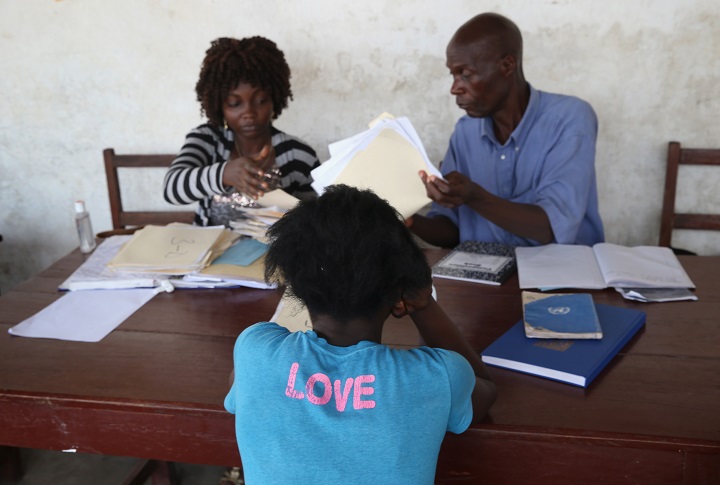MONROVIA, Liberia – Students in Liberia began returning to the classroom Monday after a six-month closure during the Ebola epidemic that left thousands dead in this West African country.

In the capital, lines formed outside entrances where returning students’ temperatures were being taken. Ebola’s main symptom is a high fever, and only those who are sick can spread the deadly virus to others.
Deputy Education Minister Remses Kumbuyah said more than 5,000 kits were distributed to schools that included thermometers and chlorine for hand-washing.

Get daily National news
“They should wash their hands in chlorine and they should ensure that there is no touching while on campus,” the minister told The Associated Press. “We are asking all the school administrators to ensure that a classroom should not have more than 45 or 50 students.”
Overcrowding is a major problem in Liberia’s schools, where as many as 100 pupils may be in a single classroom. Since Ebola is spread through direct contact with bodily fluids, administrators want to minimize the potential spread.
Ebola has killed more than 3,800 people in Liberia, and while only a handful of cases remain health officials have warned that a single new case could trigger a whole new cluster of infections.
Nearly 9,200 people have died since the first Ebola deaths in rural Guinea in December 2013. The disease ravaged through Liberia, Guinea and Sierra Leone – all countries with weak health systems that were ill-prepared for such an epidemic.

Comments